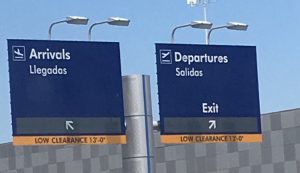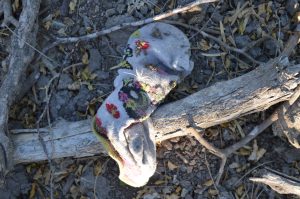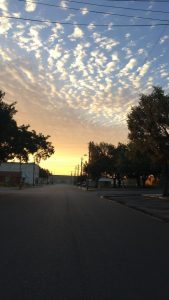
It’s been two days. Two days that I’ve been out of the Texas heat, three since I’ve walked through the harsh terrain many others still traverse. The difference is that their lives are dependent on how they cross it, how well they conserve water, how well they hide. My life was not dependent on these things. Throughout my journey across the Texas scrubland, I had plenty of access to water, I was covered head-to-toe in sunscreen and bug spray, I had food and air conditioning to look forward to, and I did not have to worry about being seen by others. Before this trip, I had read about the migrant crisis, studied it through books and documentaries. I thought I could understand what these people face on their journey to what they believe will be a better life. The truth is that no one can know what migrants face unless you’ve faced it yourself.
The work the Beyond Borders team did was difficult, something I expected. What I didn’t expect was to realize how little I actually knew about the conditions migrants face. We covered 23 miles of land but I cannot describe it in a way that sufficiently demonstrates the true nature of the environment. I can say it was hot, I can say we picked ticks off our bodies by the dozen, I can say that sand is really hard to walk in. None of these explanations truly cover what our team experienced. If I cannot explain the harshness of the environment as we experienced it, I cannot imagine the true nature of the journey as a migrant does. I can’t tell you how it feels to sleep under the cover of trees, how panic sets in when I’ve run out of water, how adrenaline kicks in when I hear movement that may be from another person. I did not have to worry about those things, but the migrants that make this journey do.

Since we’ve returned from Texas I find myself thinking of those who are still on those ranches, including the living and those that have perished along the way. I love being back home with my husband and my cats, but I know there are others separated from their families. I love sleeping in my own bed, though I know there are others trying to find a shady spot under a tree to sleep under. I’m able to go out to eat, go to the gym, to sit inside my house if I want to while others are missing, deceased, and/or unidentified. Why am I so lucky? Why am I not forced to make a decision to either remain in a place ravaged by conflict and poverty or to make a treacherous journey north that may very well cost me my life? I don’t know the answers to these questions, but I feel with all of the luck I’ve had in my life that I have an obligation to help those that are not as privileged as I am. I only hope that the work the Beyond Borders team did will mean something, help someone, or at the very least give someone hope that there are people in the world who have not forgotten them.
Before this trip, we were asked what we hoped to gain from this experience. I wanted on-the-ground knowledge about what the crisis was really like. Though the Beyond Borders team have only experienced a fraction of what migrants face on their journey, I feel that I have learned so much. I additionally feel an added weight that accompanies this knowledge. The emotional baggage is something I would never give back and I fully claim it as my own. While out to dinner with Sister Pam she said something to the group that stuck with me: “You become different people when you put your feet in other people’s shoes…it changes you”. I am forever changed by people I have never met. I have a drive to learn even more about the migrant crisis and to provide humanitarian aid sometime again in the future. To those who do this work day in and day out, thank you.
